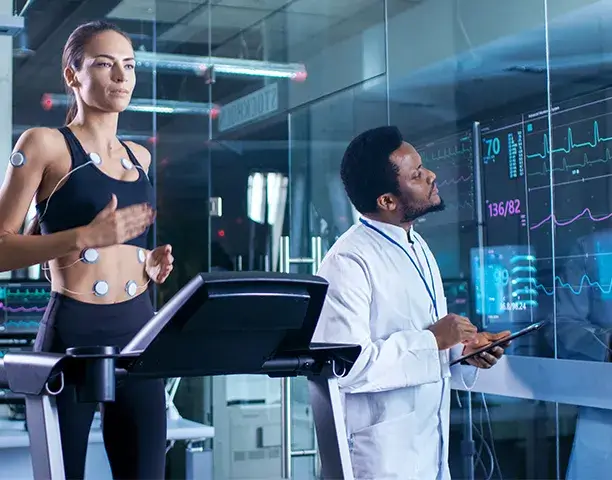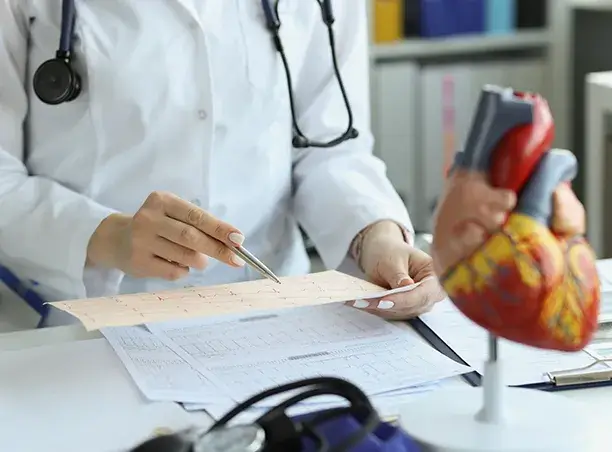


The treadmill test is a comprehensive cardiac screening to understand how your heart functions under stress. It is a quick, non-invasive procedure that offers numerous benefits:

At Marwellus Clinic & Diagnostics, we provide comprehensive treadmill tests with ECG, utilizing advanced equipment and a holistic diagnostic approach to heart health:
At Marwellus Clinic & Diagnostics in Hyderabad, we prioritize your health by offering prompt, accurate, and reliable cardiac diagnostic services. We understand the importance of early heart disease detection, and our goal is to help you take the necessary steps toward better heart health.
Don't wait for your symptoms to worsen. Early intervention can save your life. With our advanced equipment, expert cardiologists, and patient-centric approach, we provide the best cardiac care in Hyderabad. Book your TMT today and take control of your heart health.
Schedule your treadmill test (TMT) with ECG at Marwellus Clinic & Diagnostics in Hyderabad. Get the best heart care and quick results, all in one place!
Book An AppointmentA treadmill test measures your heart’s functional ability by evaluating:
Usually, a treadmill test takes around 15 to 20 mins, depending on how well you cooperate during the test.
Factors like eating a heavy meal before the test, smoking, or consuming caffeine can affect heart rate and blood pressure,electrolyte imbalance, and the presence of certain medications like beta blockers may also impact the test's interpretation.
Specially trained healthcare technicians perform a treadmill test, but in the presence of a cardiologist to assess the test.
A positive treadmill test means your ECG shows variation in the heart function, indicating inadequate blood supply to the heart after workload. This indicates an ischemic heart disease.
A negative treadmill test means even at moderate or high workload, your heart is functioning properly and has an adequate blood supply without any signs of ischemic heart disease.
You may experience some mild complications such as breathlessness, chest pain, sweating, or arrhythmias. However, the chances of these complications are as low as 1%.